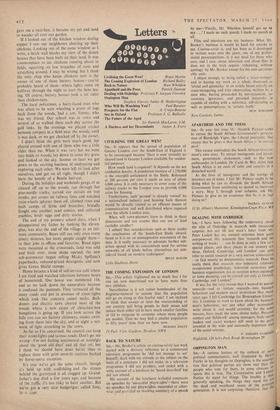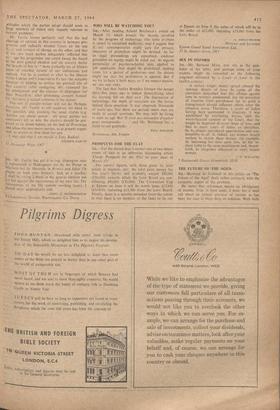ORPINGTON MAN
SIR,—A curious feature of the outlook of most political commentators, well illustrated by Herld Fairlic in his thoughts on Orpington, is the assull1P" Lion. that political parties are • more real than the people who vote for them. In some obvious re' spects this is true. The Conservative and Labour Parties do stand for things. The trouble is that, generally speaking, the things they stand for are the -dead ,and. moribund issues of the previo!Js generation. It is not surprising, therefore. that We
attitudes which the parties adopt should seem to large numbers of voters only vaguely relevant to current problems.
Mr. Fairlie knows perfectly well that the real cleavage of opinion in this country is between pro- ressive and radically minded forces on the one and resisters of change on the other, and that if the two main parties adequately reflected this age the progressive one could sweep the board at the next general election and the country derive the benefit of five fa- I more probably ten or fifteen) years of overdue reform of our institutions and Outlook. Yet he is content to allot to the liberals in the Labour amd Conservative Parties the valuable function of helping to civilise the political life of this country,' after castigating Mr. Grimond fur his dilettantism and the electors of Orpington for their Poujadisrn.. after professing concern himself for 'the more p:actical concerns of the nation.'
This sort of pseudo-realism will not do. Perhaps, therefore, Mr. Fairlie would readdress his mind to this question. and. avoiding the usual clichés (e.g. 'polities arc about power'; 'all great parties are coalitions') tell us why the electors should be pre- pared to lie down tamely on his bed of Procrustes and allow. the two major parties, as at present organ- ised, to stretch or trim them for size
I may add that I am myself a Tory Radical.



































 Previous page
Previous page